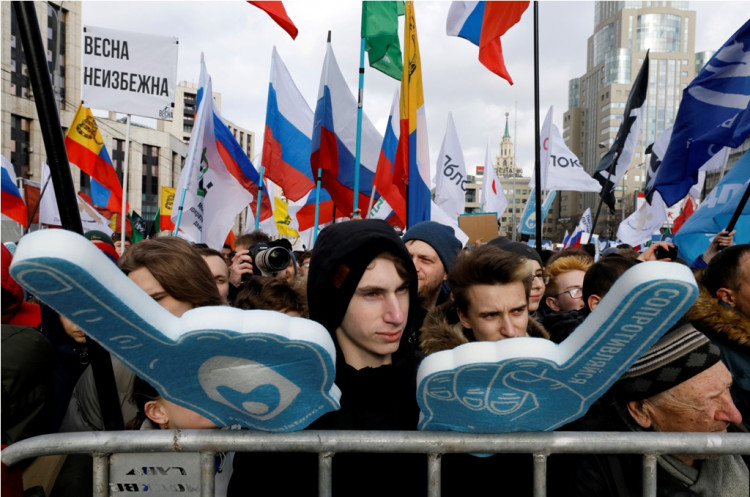Aside from the general public, experts have started expressing concerns about Russia's plan of cutting the country off from the rest of the internet world. Most industry experts said the plan will come with millions in costs and could pose extreme challenges in terms of maintenance.
Ever since the announcement was made, industry experts have been warning of the potential risks that Russia's plan can bring. According to Technology Review, some analysts pointed out that the reported $304 million in funding for the scheme may not even be enough to get the system in place and maintain it in the long run.
The two-week departure test is only part of a proposed "sovereign internet law" that is currently being held up in Parliament, multiple reports revealed last week. Most experts believe that President Vladimir Putin will sign the proposal into law but it still has to go through a few government bodies before it lands on the president's table.
There are certain channels that Russia will have to shut off completely if it pushes through with its plan. One of these is the global domain name system (DNS). If the country unplugs from the DNS, traffic will be rerouted only through exchange points that the government will approve.
Ameet Naik, an industry expert on internet monitoring for ThousandEyes, noted that Russia's world shut off plan will create "an alternate reality for the majority of Russian internet users." He further explained that if the country creates an alternate DNS, the government could have control of internet channels within its borders alone.
Andrew Sullivan, president, and CEO of the Internet Society clarified that this plan of action will not be easy as it will definitely involve configuration processes of thousands of systems. It will also be a headache to identify most, if not all, access points that Russian citizens are using to go online.
Despite concerns about the plan, other analysts pointed out that Russia's will in making things happen should not be taken lightly by other nations. The test will only show if Putin's administration prepared well for the country's potential world internet exit.
Last month, The Telegraph reported that internet experts said the scheme could also result in major disruptions on the flow of information and connections in the Russian internet realm. Extreme or unnecessary censorship is another issue that the general public has qualms of.
While most Russian internet firms are reportedly supportive of the test, they are also worried that business will be disrupted and public outcry could affect sales and revenue.





